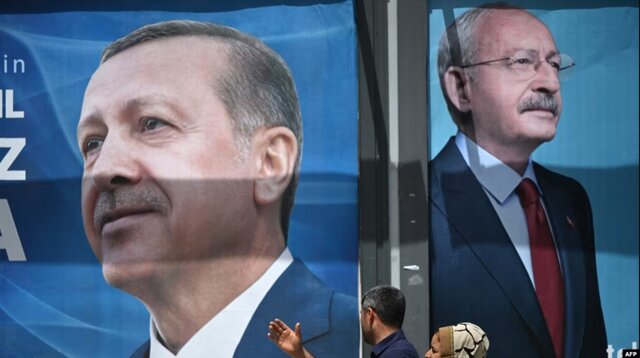If, on the eve of the first round, few serious pundits dared to predict who would win the Turkish presidential elections, on the eve of the second round more and more analysts are inclined to believe that the incumbent Turkish President Recep Tayyip Erdogan has won this showdown. The reason for this forecast lies in the same factor that constituted the main risk for Erdogan on the eve of the first round – the state of the opposition coalition.
Despite the obvious weakness of its candidate, Kemal Kilicdaroglu, as everyone pointed out from the beginning, the risk for Erdogan was that the opposition could consolidate the protest electorate of the left and the right, secularists and some religious Muslims, Turkish nationalists and Kurds, because of dissatisfaction with various aspects of his policies. And to some extent this has happened. However, Kilicdaroglu failed to mobilize these voters to the extent that he could win in the first round. On the other hand, his behavior to secure a victory in the second round clearly divides this protest coalition and quickly destroys his chances of winning.
To his credit, Kilicdaroglu moved away from positioning himself as an anti-religious secularist politician and appealed to religious voters and allies. As a result, the confrontation has not taken on the character of a clear “pro-Islam vs. anti-Islam” dilemma. However, Kilicdaroglu has not been able to avoid another important dilemma for Turkish society: between Turkish nationalism and the Kurdish factor.
Yes, his turn to radical nationalist rhetoric in order to gain the support of Sinan Ogan’s voters before the second round of elections was directed against refugees, mainly Arabs, Afghans, etc., which does not seem to be a threat to the Kurdish citizens of Turkey. First, however, this alienated a part of his Muslim supporters, as happened with several prominent representatives of the Future Party led by Ahmet Davutoglu, who announced their withdrawal from the party on the grounds that neither this party nor the broad opposition coalition was created for the purpose of the politics of hatred to which Kilicdaroglu is now resorting.
Second, the alliance between Kemal Kilicdaroglu and one of the two leading ultra-nationalists, Umit Ozdag (Sinan Ogan, on the other hand, has expressed his support for Erdogan), is very likely to alienate the Kurdish voters and some former supporters of the Broad Opposition Coalition. The reason is that Kilicdaroglu accepted Ozdag’s condition that the central government could intervene to remove Kurdish mayors elected with the support of the Kurdistan Workers’ Party, even though one of the points of the opposition coalition’s agreement was to expand local self-government. This not only repels many Kurdish voters, but also some other oppositionists who are outraged by the violation of coalition principles – if Kilicdaroglu is doing this now to solve his electoral tasks, what will he do later when he gets presidential powers? Although the leadership of the political wing of the Kurdistan Workers’ Party, despite their disappointment with his behavior, called on the voters to vote for him anyway in order to defeat Erdogan, their authority may not be enough to convince their voters to do so.
By losing the support of some Kurds, Kilicdaroglu may also fail to win over the ultra-nationalist voters he relied on when he turned to them. This is due both to Sinan Ogan’s decision to support Erdogan and to the general unpopularity of his candidacy among representatives of this political camp.
Thus, if we judge these elections purely politically, Recep Tayyip Erdogan has already won. However, it should be remembered that the final decision will not be made by political analysts, but by the electorate, which, like a capricious woman, often makes decisions contrary to logic. However, very soon we will be able to see to what extent the two main candidates have convinced the electorate.

